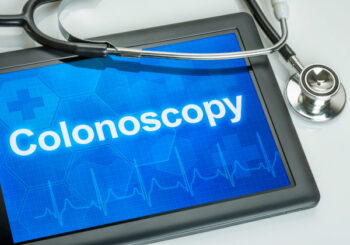Contributing writer for Wake Up World
I’m 69 and I’ve never had a colonoscopy. I also have no plans to get one. While I believe they can be valuable in some circumstances, I feel confident that with my rigid avoidance of omega-6 linoleic acid (LA) and lifestyle it’s highly unlikely I will develop any cancer, let alone colon cancer.
For those at high risk, colonoscopies may be useful, but it’s important to weigh the potential benefits against the potential harms. Though they’re touted as the gold-standard recommendation for colorectal screening, colonoscopies are not risk-free, nor are they guaranteed to reduce your risk of colorectal cancer death.1
The U.S. Preventive Services Task Force recommends adults between the ages of 45 and 75 be screened for colorectal cancer every 10 years.2 As a result, about 15 million colonoscopies are performed every year in the U.S.3 Before scheduling your colonoscopy appointment, here’s what you should know to make an informed decision about whether or not this screening tool is right for you.
What Is a Colonoscopy?
During a colonoscopy, a doctor uses a thin, flexible, lighted tube with a camera on the end to view the inside of the rectum and the entire colon. Visual inspection is a reliable way to check for colon cancer, and if polyps, some of which may turn into cancer over time, are found in their early stages, your doctor can snip them off then and there.
So, a colonoscopy is not only a diagnostic tool; it can also serve as a surgical intervention. During the procedure, the doctor will take a picture of the polyp, clip it, capture it and send it for a biopsy. So, depending on your risk factors, it’s something to consider.
However, colonoscopy is not the only screening option for colorectal cancer. There are also less invasive stool tests, including the guaiac-based fecal occult blood test (gFOBT) and fecal immunochemical test (FIT), which check for the presence of blood or antibodies in your stool. There’s also a FIT-DNA test, sometimes called the stool DNA test, which combines FIT with a test to look for altered DNA in your stool.4
Flexible sigmoidoscopy and computed tomography (CT) colonography, also called virtual colonoscopy, are additional options. Flexible sigmoidoscopy is similar to a colonoscopy but uses a shorter and smaller scope, so it cannot see as far up into your colon.
Many doctors fail to review the benefits and risks of each screening option with their patients, however, and instead only recommend colonoscopy.5 But there are significant drawbacks worth noting.
Colonoscopies Reduce Cancer Diagnoses — But Not Cancer Deaths
A 2022 study published in The New England Journal of Medicine found the benefits of colonoscopies are not as great as they’re made out to be.6
The Northern-European Initiative on Colon Cancer (NordICC) study — a randomized trial involving 84,585 adults between 55 and 64 years of age — assigned participants in a 1-to-2 ratio to receive an invitation to undergo a colonoscopy or to receive no invitation or screening. None of the participants had gotten a colonoscopy previously.
After 10 years, those who were invited to get colonoscopies had an 18% lower risk of colorectal cancer than the unscreened group.7 However, there was no statistically significant reduction in the risk of death from colorectal cancer in the group invited to screening. The researchers intend to follow the participants for another five years to see if anything changes, but according to the study:8
“The risk of death from colorectal cancer was 0.28% in the invited group and 0.31% in the usual-care group … The number needed to invite to undergo screening to prevent one case of colorectal cancer was 455 … The risk of death from any cause was 11.03% in the invited group and 11.04% in the usual-care group.”
There were some limitations to the study, including a low uptake rate for those invited to get a colonoscopy. Only 42% of those invited to do the procedure actually did so. When the researchers analyzed the results based only on those who received colonoscopies, the procedure reduced the risk of colorectal cancer by 31% and reduced the risk of dying from colorectal cancer by 50%.9
Still, speaking with STAT News, Dr. Samir Gupta, a gastroenterologist who was not involved with the study, noted, “This is a landmark study. It’s the first randomized trial showing outcomes of exposing people to colonoscopy screening versus no colonoscopy. And I think we were all expecting colonoscopy to do better. Maybe colonoscopy isn’t as good as we always thought it is.”10 Even study author Dr. Michael Bretthauer said:
“It’s not the magic bullet we thought it was. I think we may have oversold colonoscopy. If you look at what the gastroenterology societies say, and I’m one myself so these are my people, we talked about 70, 80, or even 90% reduction in colon cancer if everyone went for colonoscopy. That’s not what these data show.”
Bretthauer suggested colonoscopy may, in practice, reduce colorectal cancer risk by 20% or 30%, which is close to reductions offered by other less expensive, and less invasive, screenings, including fecal testing.
What Are the Risks of Colonoscopies?
Colonoscopy is a medical procedure with significant risks, including a risk of death. The risk of death from a colonoscopy from one source was 1 in 16,318 procedures evaluated.11 In the same analysis, the researchers also found 82 suffered serious complications. Another analysis found a death rate of 3 per 100,000 colonoscopies, along with serious adverse events in 44 per 10,000, “with a number needed to harm of 225.”12
Other risks include bleeding after removal of a precancerous polyp and perforation. A systematic review and meta-analysis found the risk of perforation after colonoscopy was about 6 per 10,000 while the risk of bleeding was about 24 per 10,000 procedures.13 However, the risks can vary significantly depending on where the procedure is performed and depend on the skill level of the physician doing the procedure.
The risk of perforation at Baylor University Medical Center, according to one study, was 0.57 per 1,000 procedures or 1 in 1,750 colonoscopies.14 Other complications related to anesthesia can also occur, including aspiration pneumonia, along with intraperitoneal hemorrhage.15
Across the U.S. 34.4% of those undergoing a colonoscopy used anesthesia,16 which increases the overall risk of complications. In the Northeast, use of anesthesia was associated with a 12% increased risk of complications, but this rose to 60% among colonoscopies performed in the West.17
Generally speaking, you should opt for the lightest level of sedation possible, or none at all, to reduce anesthesia-related risks. Those who have sleep apnea, obesity, high blood pressure or diabetes are at increased risk of anesthesia complications.18
Dysbiosis and other gut imbalances, caused by the process of flushing out your intestinal tract with harsh laxatives before the procedure, are another concern.19 Meanwhile, research suggests up to 25.7% of all colonoscopies are unnecessary,20 so you must carefully consider whether the risks outweigh the benefits for your individual scenario.
Contaminated Equipment Could Also Make You Sick
How well the colonoscopy equipment is sterilized between patients also affects the riskiness of the procedure, as David Lewis, Ph.D., and I discuss in the short video above. One common issue is that endoscopes have expensive, sensitive equipment attached that cannot be heat sterilized. And, unfortunately, manufacturers have not been made to produce a scope that can be sterilized in this way.
As Lewis points out, “We can put a Rover on Mars, surely we can build a flexible endoscope that we can put in an autoclave.” So, during the examination, the physician may be unable to see through the scope because it’s clogged with human tissue from a past exam. In this case, the scope must be retracted and another one used in its place.
Lewis reports that up to 80% of hospitals sterilize flexible endoscopes with glutaraldehyde (Cidex), which does not dissolve tissue in the endoscope but, rather, preserves it. Then, when sharp biopsy tools are run through the tube, patient material from past testing is scraped off and potentially carried into your body.
This is why it’s important to find a clinic or hospital that uses peracetic acid, which is similar to vinegar, to thoroughly sterilize the equipment by dissolving proteins found in the flexible endoscopes. Before scheduling any endoscopic examination call to ask how the equipment is sterilized between patients. Specifically, you can ask:
- How is the endoscope cleaned between patients?
- Which cleaning agent is used?
- How many of your colonoscopy patients have had to be hospitalized due to infections?
Diet Is a Leading Cause of Colorectal Cancer
While screening for early cancer detection can be valuable in some cases, it’s wise to take steps to proactively reduce your risk of cancer development. For colorectal cancer, this means targeting your diet.
Aside from skin cancer, colorectal cancer is the third most common type of cancer in the U.S., as well as the third leading cause of cancer-related deaths.21 Lifestyle factors, including dietary choices, play a significant role in the occurrence and progression of colorectal cancer,22 with only an estimated 20% of cases caused by genetic factors and the remainder due to environmental reasons.
Up to 70% of colorectal cancer (CRC) cases are believed to be related to diet, according to researchers with the University of South Carolina School of Medicine.23 So, one powerful strategy is to focus your diet on whole foods, avoiding ultraprocessed foods as much as possible.
Processed convenience foods are linked to an increased risk of developing and dying from cancer,24 and they’re high in the omega-6 fat linoleic acid, which is found in many seed oils like soybean, cottonseed, sunflower, rapeseed (canola), corn and safflower.25 Higher intake of ultraprocessed foods (UPFs) is also linked to an increased risk of colorectal cancer (CRC) precursors, leading researchers to suggest, “UPFs might be a modifiable target for early prevention of CRC.”26
Colonoscopies Are Not One-Size-Fits-All
While colonoscopies are often described as a universal solution for colon cancer screening, several factors — including your age and risk of colorectal cancer — influence whether or not you should get one. Be sure you understand the risks and potential benefits before making a decision.
And, remember to contact the clinic or hospital ahead of time to find out about sterilization procedures. You’re looking for a hospital that uses peracetic acid — not glutaraldehyde (Cidex) — to sterilize its flexible endoscopes.
References:
- 1, 6, 8 The New England Journal of Medicine October 9, 2022
- 2 U.S. CDC, What Should I Know About Screening?
- 3, 7, 9 CNN October 9, 2022
- 4 U.S. CDC, Colorectal Cancer Screening Tests
- 5 Arch Intern Med. 2012;172(7):575-582. doi: 10.1001/archinternmed.2012.332
- 10 STAT News October 9, 2022
- 11 Annals of Internal Medicine 2006 Dec 19;145(12):880
- 12, 13 CMAJ Open. 2021 Oct-Dec; 9(4): E940–E947
- 14, 15 Proc (Bayl Univ Med Cent). 2015 Jan; 28(1): 3–6
- 16, 17 Gastroenterology, 2015; doi: 10.1053/j.gastro.2015.12.018
- 18 Medical News Today, January 5, 2018
- 19 Cell, 2018;173(7):p1742
- 20 Journal of General Internal Medicine February 25, 2022
- 21 U.S. CDC, Colorectal Cancer Statistics
- 22 JAMA Network Open February 16, 2021, Intro
- 23 American Journal of Physiology, Gastrointestinal and Liver Physiology February 28, 2022, Intro
- 24 Imperial College London February 1, 2023
- 25 Int J Mol Sci. 2020 Feb; 21(3): 741
- 26 J Natl Cancer Inst. 2023 Feb 8;115(2):155-164. doi: 10.1093/jnci/djac221
About the author:
Born and raised in the inner city of Chicago, IL, Dr. Joseph Mercola is an osteopathic physician trained in both traditional and natural medicine. Board-certified in family medicine, Dr. Mercola served as the chairman of the family medicine department at St. Alexius Medical Center for five years, and in 2012 was granted fellowship status by the American College of Nutrition (ACN).
While in practice in the late 80s, Dr. Mercola realized the drugs he was prescribing to chronically ill patients were not working. By the early 90s, he began exploring the world of natural medicine, and soon changed the way he practiced medicine.
In 1997 Dr. Mercola founded Mercola.com, which is now routinely among the top 10 health sites on the internet. His passion is to transform the traditional medical paradigm in the United States. “The existing medical establishment is responsible for killing and permanently injuring millions of Americans… You want practical health solutions without the hype, and that’s what I offer.”
Visit Mercola.com for more information, or read Dr. Mercola’s full bio and resumé here.

If you've found value in our articles, we invite you to support the release of our brand-new book, "Gratitude Practices for Kids: A Practical Guide for Adults to Instill a Spirit of Appreciation and Positivity in the Next Generation."
"Gratitude Practices for Kids" brings together over 25 innovative and accessible practices designed to enhance gratitude in everyday life. This comprehensive guide is backed by 17 scientific studies, ensuring each concept is grounded in research, underscoring our commitment to nurturing growth, emotional intelligence, and positive interactions between adults and children.
We encourage you to opt for the paperback version to celebrate this new release. Dive into its fresh pages away from digital distractions, allowing you to immerse yourself in the transformative practices it offers.
Over recent years, Wake Up World has faced significant online censorship, which has impacted our financial ability to operate. Moving into book publishing represents a strategic step to secure the ongoing funds needed to continue our mission. By purchasing Gratitude for Kids, you help us keep our content free and accessible to everyone, avoiding needing a paywall. With over 8,500 articles published in the last 13 years, we remain dedicated to keeping our valuable content open to all.










